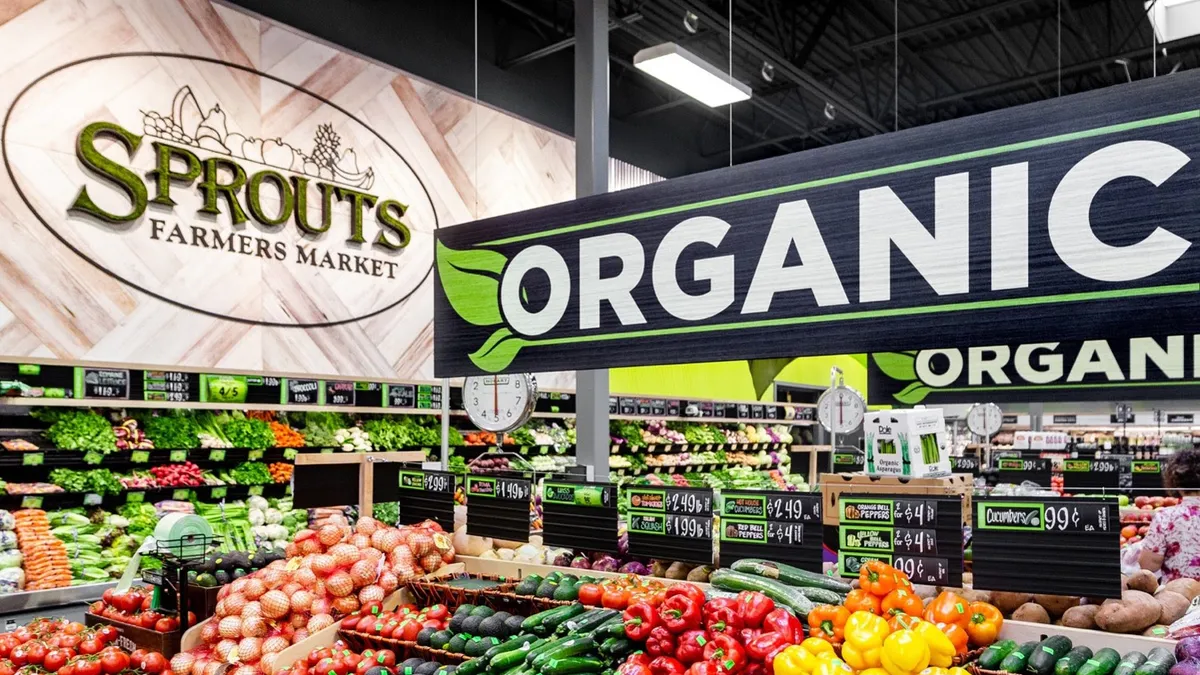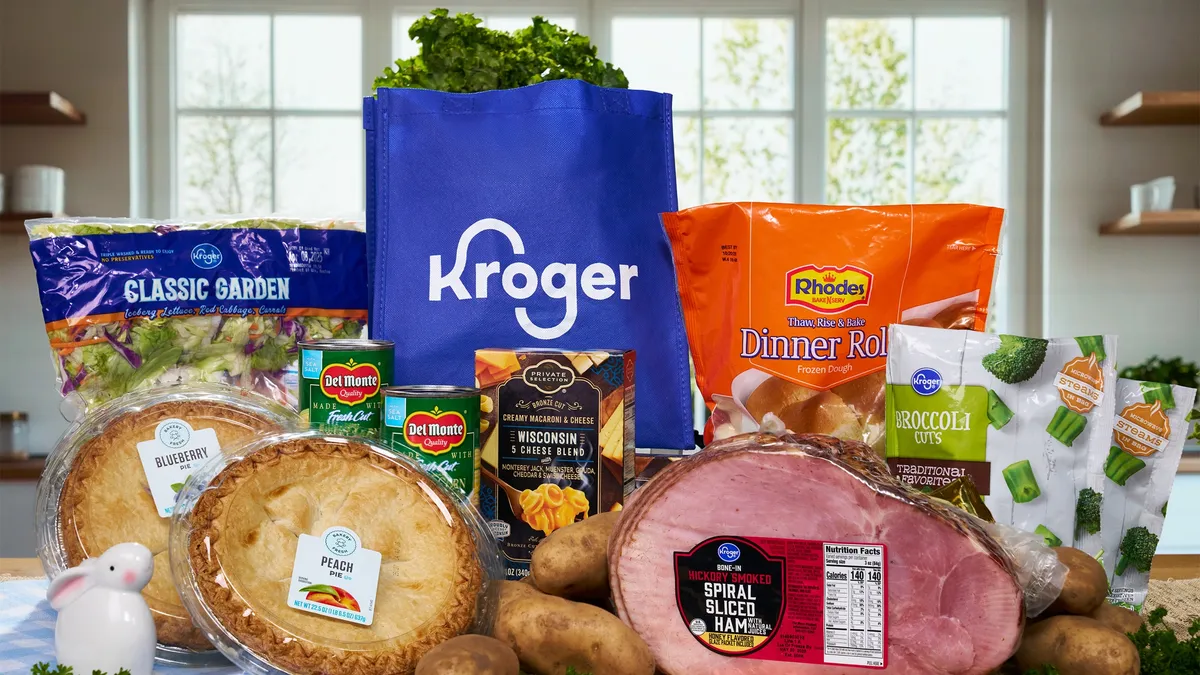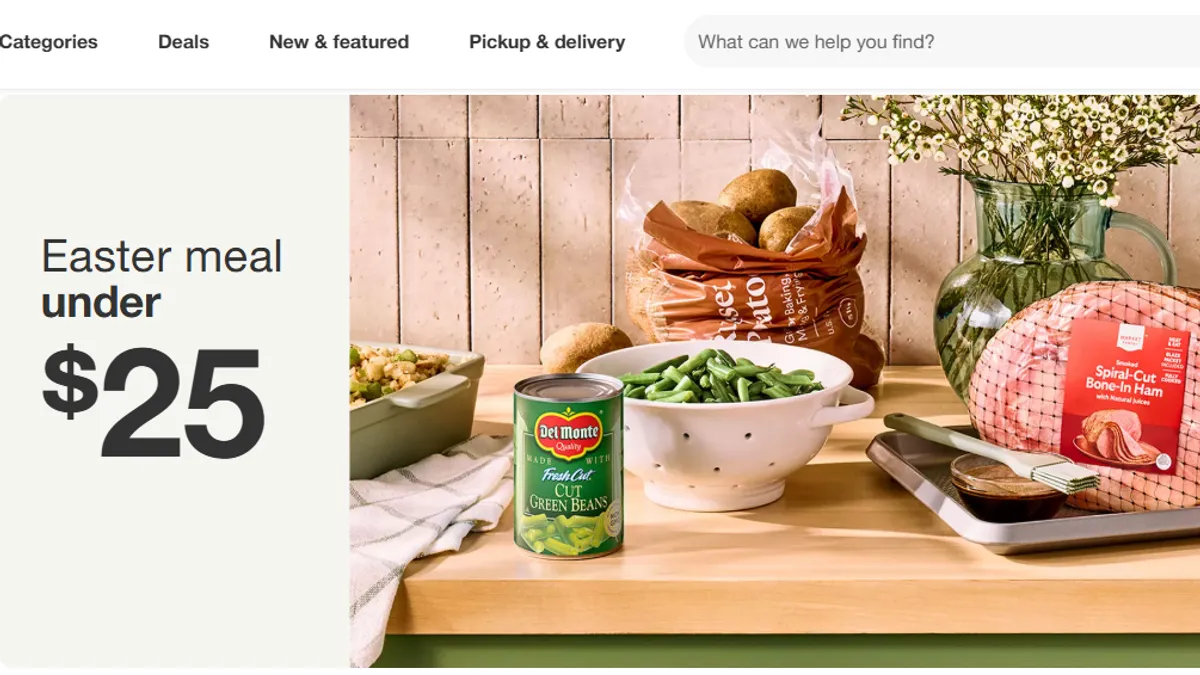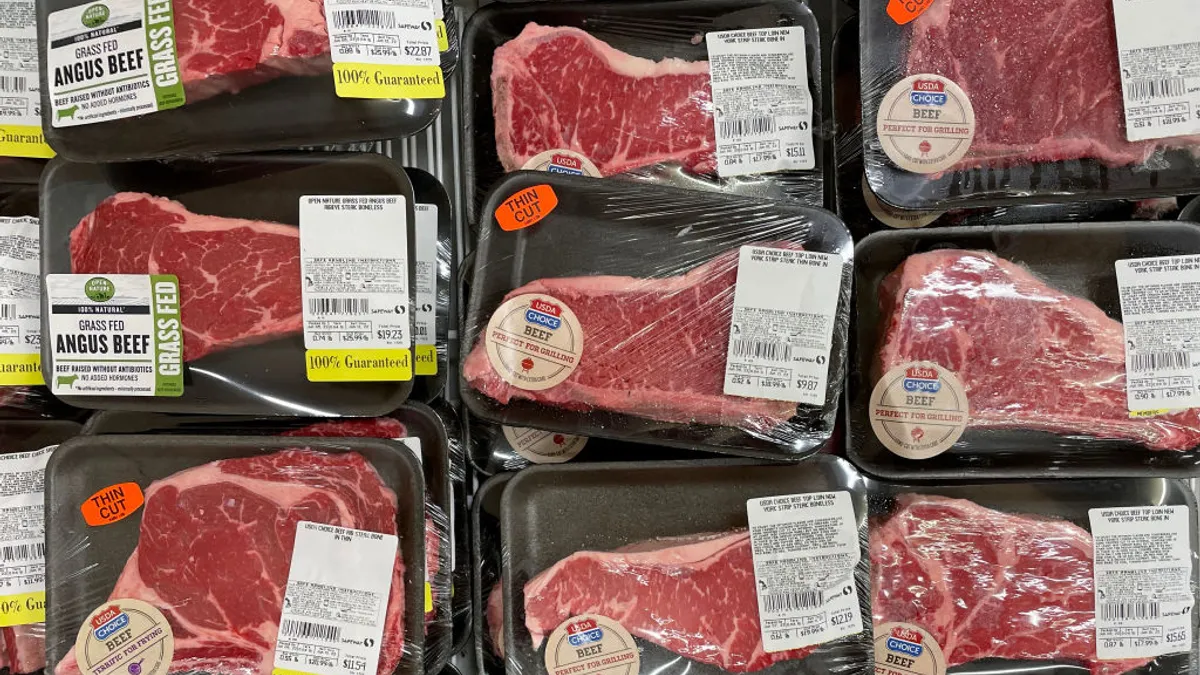"On Special" is a monthly look at top store categories and the retailers that specialize in them.
Produce is more than just the biggest traffic driver at Sprouts Farmers Market, Dave McGlinchey, Sprouts' Chief Merchandising Officer told Grocery Dive. It's rooted in the company’s history. What originally started as founder Henry Boney’s produce stand in 1943 endured rapid expansion and a series of mergers, ending up as a chain of more than 300 specialty stores where the focus on fresh fruits and vegetables remains.
The category is always top of mind for customers and has the ability to sway a customer's opinion of a store, McGlinchey said. That's why the Phoenix-based grocer positions the department front-and-center and is always looking for new ways to gain an edge over the competition.
“We think of ourselves as not just a food store but where customers can go to start their health journey. Produce is typically the star of their health journey,” McGlinchey said. “We draw them in with produce, but we have everything in the store from grass-fed beef to the latest collagen supplements.”
 What’s trending?
What’s trending?
Consumers are looking for more seasonal options across categories, McGlinchey said. To make sure stores are well-stocked and quality is consistent both in stores and through online shopping, Sprouts maintains close relationships with its growers. It also has carefully selected sourcing teams that work out of the company's five distribution centers.
“We have really great product experts here that attend trade shows and follow influencers to identify trends that they think will last and do well," McGlinchey said. "They take those trends and do a great job with marketing to get them out,” he said.
 Best sellers
Best sellers
Mangos, avocados and mandarin oranges have been strong sellers for Sprouts recently. This year and last, the retailer has also seen a huge uptick in celery sales, partly due to the celery juice trend, McGlinchey said.
Between October 2018 and January of this year, celery juice sales grew by 454%, according to the Global Wellness Institute. Sprouts is capitalizing on the trend by selling bottled celery-based juice that's created in-house and sold in its Market Corner Deli. Celery-based juices are mixed with other juiced produce to improve the taste. Pre-bottled celery juices from brands like Evolution Fresh are also sold on shelves.
Sprouts' marketing team has been working to educate consumers on the celery trend and its nutritional benefits using signage and trained associates.
Produce is the star
Sprouts puts produce at the center of its stores, thus inverting the perimeter-focused model most retailers follow. The strategy is simple: Draw shoppers in with a wide selection and competitive prices, then earn margins throughout the rest of the store.
"I think generally if you look at most studies of how people shop, produce is always the number one reason people pick a grocery store," said McGlinchey. "For Sprouts, it really sets the tone for the store on freshness, variety and price for customers."
Looking at the numbers, produce comprises of about 15% of the store footprint and more than 23% of sales, said chief development officer Ted Frumpkin at last year's Groceryshop conference.
A focus on shopper education
Sprouts trains workers to educate consumers in its stores, but in the internet age online education is also crucial. McGlinchey says flexing its expertise in produce and building shopper knowledge has been a big focus for the retailer over the past year.
“We set up a digital team that’s been laser-focused on trying to get awareness of produce through social media outlets like Instagram, Pinterest and Facebook, since we’re the experts,” he said.
The retailer's educational content on seasonal and trending products comes through articles on Sprouts.com, social media and in-store signage. A recent example is a video that ran on Sprouts.com as well as Facebook Live featuring seasonal stone fruit recipes.
Tackling deflation and weather
According to McGlinchey, the number one challenge within the produce industry is weather. North American consumers want all their produce available year-round, and retailers are used to relying on a geographically diverse range of growers. But weather events, like heavy rain in California early this spring, can still strain supply.
Another challenge, he says, it deflation. Every year Sprouts thinks inflation will flow back into the category, and every year they’ve been wrong, he says. As mass and conventional retailers like Walmart or Kroger get aggressive on price, Sprouts and other competing retailers are reluctant to pass along price increases they see on the supply side.
Differentiating Sprouts in a commodity business is also a challenge, McGlinchey said. Pricing alone is not a sustainable advantage, so the retailer is trying to stay on top of the game when it comes to variety, quality and organic selection.
E-commerce growth
Many retailers have struggled to convert produce and meat sales online because of quality inconsistencies and a lack of trust, McGlinchey said. But Sprouts has seen “pretty good results” in produce in e-commerce through its partnership with Instacart.
"We have consistent quality and an advantage in the evolution of how the business is going," he said.
The company launched nationwide delivery through Instacart early last year, and now offers the service from more than 200 of its roughly 320 locations. Sprouts has stated in the past that delivery is its primary focus because it extends the reach of its stores. But the grocer is getting into pickup, as well, with a recent rollout at stores in and around its home city of Phoenix.
The state of retail produce
- Retail produce departments generated $60.8 billion in sales in 2018, up 1.7% over 2017, according to a recent report from the United Fresh Produce Association and Nielsen.
- Organic fruits and vegetable sales grew 5.6% in 2018, totaling $17.4 billion, according to the Organic Trade Association.
- Value-added produce, the rapidly growing sub-category, accounts for 4.5% of total produce sales, the Food Marketing Institute noted in its recent produce industry report. About 92% of households have purchased at least some value-added produce.





















